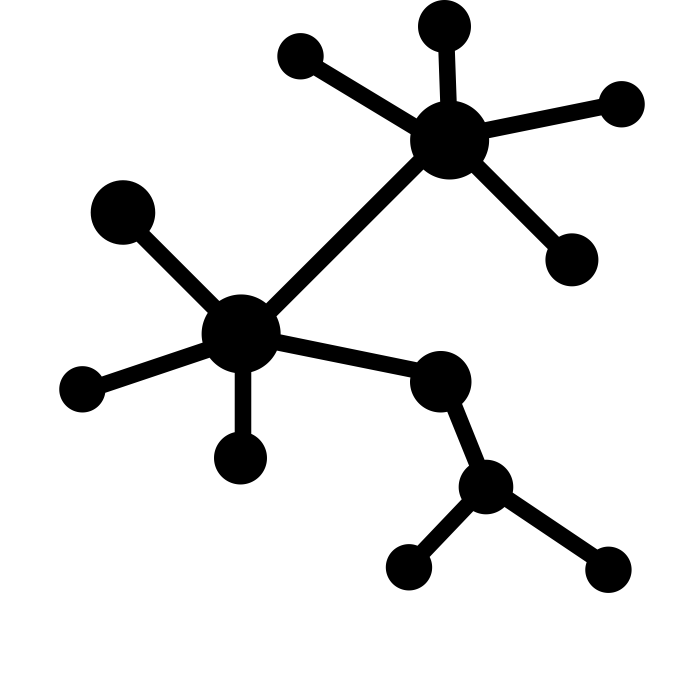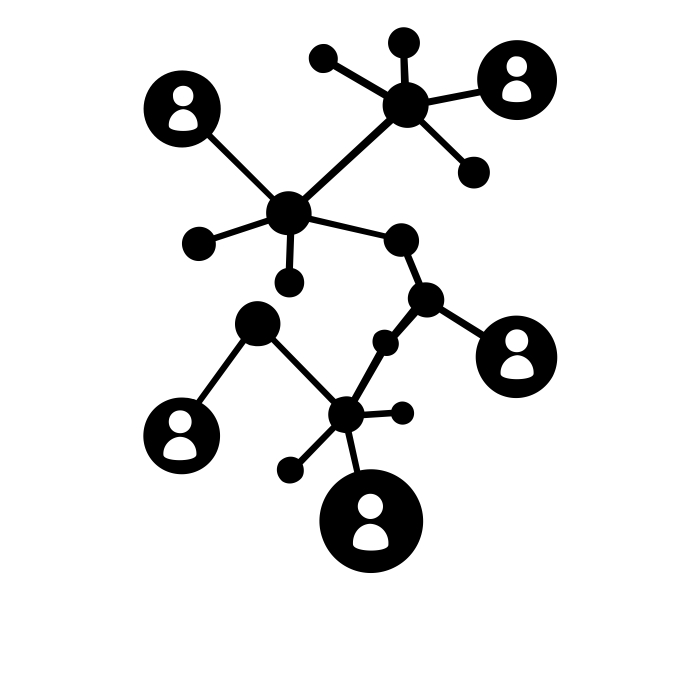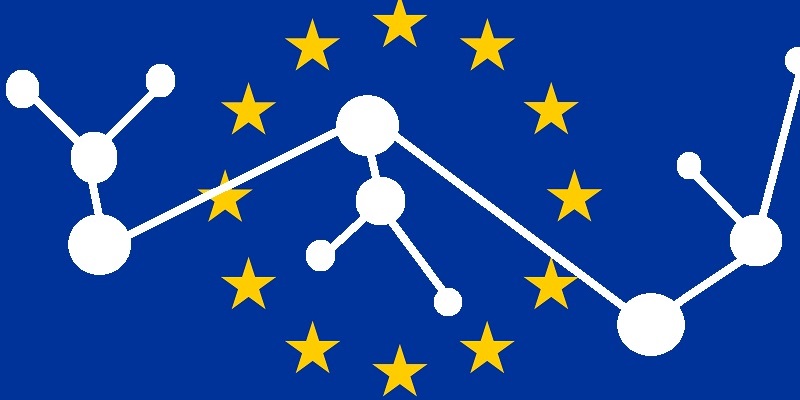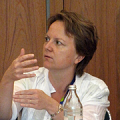The CEET, through the involvement of researchers coordinated by Nathalie Greenan, is one of the components of a prestigious, ambitious and very large European research project involving 16 other European research institutes, for a total amount of € 5 million: the Ingrid2 project. Let's see that more closely...
Ingrid2 is a European research project funded by the European Commission under the Horizon 2020 (H2020) research program. Ingrid2 follows, it seems obvious, Ingrid which was signed during the 7th PCRD, including "Framework program for research and development". Ingrid used the MEADOW project from FP6. The goal is not to drown under obscure acronyms but to emphasize that this research project that already has a long history is, moreover, resolutely turned towards the future. Because if our researchers have just signed the agreement validating Ingrid2, they are already thinking about it ...
Who is Ingrid?
 The Inclusive Growth Research Infrastructure Dissemination (INCP) project brings together a total of 17 European research institutes (including our Center for Employment and Labor Studies (CEET)), coordinated by the Catholic University of Louvain and represents a total of over 9 million euros. In one sentence. The goal was to create a research community composed of multiple research infrastructures interacting together. This networking of means is usually rather reserved for hard sciences and engineering sciences, sharing, for example, expensive equipment. In our case, it is about human and social sciences; the goal is to share databases and knowledge. Concretely: to create a network of research infrastructures (IR) in which researchers can, depending on their scientific needs, go to where to look for information, to work in collaboration with researchers. other institutes / countries, to share their knowledge, to bring new glances on issues close to their own or to train in a more global way their young collaborator. This initiative, which aims to address the challenges of inclusive growth, is very concrete in the development of the European Research Area, which is one of the main objectives of the H2020 program.
The Inclusive Growth Research Infrastructure Dissemination (INCP) project brings together a total of 17 European research institutes (including our Center for Employment and Labor Studies (CEET)), coordinated by the Catholic University of Louvain and represents a total of over 9 million euros. In one sentence. The goal was to create a research community composed of multiple research infrastructures interacting together. This networking of means is usually rather reserved for hard sciences and engineering sciences, sharing, for example, expensive equipment. In our case, it is about human and social sciences; the goal is to share databases and knowledge. Concretely: to create a network of research infrastructures (IR) in which researchers can, depending on their scientific needs, go to where to look for information, to work in collaboration with researchers. other institutes / countries, to share their knowledge, to bring new glances on issues close to their own or to train in a more global way their young collaborator. This initiative, which aims to address the challenges of inclusive growth, is very concrete in the development of the European Research Area, which is one of the main objectives of the H2020 program.
Indeed, the H2020 program is grounded upon three "pillars": scientific excellence, industrial primacy and societal challenges. The Ingrid2 project is linked to the "scientific excellence" pillar, as are the Marie Sklodowska-Curie actions and the ERC funding, such as the one obtained in 2015 by Matthieu Montes, researcher in Bioinformatics at the GBA laboratory.
The research carried out under Ingrid2 focuses on working conditions and vulnerability. These themes and disciplinary fields are in perfect adequacy with the work carried out by researchers from Cnam to CEET and in Lirsa, Lise and CRTD laboratories.
More precisely...
The general objectives of Ingrid are to integrate and develop social science research infrastructures existing in Europe on the themes of "poverty and living conditions" and "working conditions and vulnerability", through three main activities:
- organizing transnational access to nationally available statistical data infrastructures
- organization of mutual exchange of knowledge activities
- organizing joint research activities to improve methods and tools for comparative research
The response to Ingrid2 allows CEET to position itself as a center of European expertise on French and international surveys addressing the issues of quality of life at work and the quality of jobs. One of the activities of the project, entitled "Transnational Access" to data (TNA), consists in advising foreign researchers on the possibilities of comparison between French surveys in the field of work and employment (employment surveys)., working conditions, Sumer, SIP, coupled surveys Response, IOC, CT, RPS, Difes, Defis) and peer surveys developed in other European countries. It also aims to support researchers in their use of household and business surveys developed by the Dublin Foundation (EWCS, ECS), OECD (PIAAC, TALIS), EU-OSHA ( Esener), Cedefop (European skills and job survey) and to develop research cooperation around the mobilization of these data. Conversely, this opens the possibility for French researchers to be hosted in one of the transnational access partner (TNA) structures.
The project continues to fund knowledge exchange activities through a summer school (2018) and an expert workshop (2019). Compared to Ingrid, new networking activities are planned to foster innovation in the development of surveys and databases that the project seeks to integrate: data forums (2020), exchanges within the guidance council of the project.
 Finally, a set of research projects are launched, involving the teams associated with the "working conditions and vulnerability" and "statistical methodology" pillars, which contribute to the development of the common research infrastructure. They concern the collection and provision of data, their analysis and their valuation with the public authorities and the social actors. The CEET researchers involved in the project are involved in collaborative work coding corpora of texts producing social norms on labor issues (collective agreements, laws), with the aim of achieving comparisons between several countries. They will work on the development of metadata indicating how to compare national surveys in several countries on the topics of working conditions, employment relationships or skills mobilized in the workplace. They will participate in the construction of an integrated pseudo-panel database aggregating several international surveys at an intermediate level. These tools will then be used to analyze the effects of employers' behavior and to evaluate public policies of work and employment targeting the most vulnerable groups.
Finally, a set of research projects are launched, involving the teams associated with the "working conditions and vulnerability" and "statistical methodology" pillars, which contribute to the development of the common research infrastructure. They concern the collection and provision of data, their analysis and their valuation with the public authorities and the social actors. The CEET researchers involved in the project are involved in collaborative work coding corpora of texts producing social norms on labor issues (collective agreements, laws), with the aim of achieving comparisons between several countries. They will work on the development of metadata indicating how to compare national surveys in several countries on the topics of working conditions, employment relationships or skills mobilized in the workplace. They will participate in the construction of an integrated pseudo-panel database aggregating several international surveys at an intermediate level. These tools will then be used to analyze the effects of employers' behavior and to evaluate public policies of work and employment targeting the most vulnerable groups.
If Nathalie Greenan is the scientific manager, the Ingrid2 project is brought to CEET, in terms of global coordination, logistics and organization, as well as research, by an already experienced team. acquired during the first Ingrid project: Sylvie Hamon-Cholet, Majda Seghir and Colette Leverne.
Since last May and the signing of the contract, CNAM, through the CEET, is officially launched in this major project. € 357,000 will be paid over 4 years by the European Commission to fulfill these objectives in collaboration with the 16 other European research institutes that are partners in this project!
What is a research infrastructure (RI) ?
RIs are facilities, resources and services that are used by researchers to conduct their work and foster innovation in their own scientific fields.
Where appropriate, they can be used for education or support of other public policies such as health, safety, preservation of the environment, the French presence abroad.
They consist in:
- outstanding equipment - or sets of instruments - scientific
- cognitive resources such as collections, archives and scientific libraries
- virtual infrastructures, such as databases, computer systems and communication networks
- and any other infrastructure or observation network of a unique nature that is essential to enable their user scientists to conduct their research and innovation in an ideal setting.
RIs are indispensable tools for research. Thanks to their outstanding performance and their opening up to more and more scientific communities, they have helped to unite these communities and have enabled them to make remarkable advances in several areas of physics, biology and materials. The explosion of the use of large communication networks has boosted phenomenal virtualization of research and innovation activities.







 The Inclusive Growth Research Infrastructure Dissemination (INCP) project brings together a total of 17 European research institutes (including our Center for Employment and Labor Studies (CEET)), coordinated by the Catholic University of Louvain and represents a total of over 9 million euros. In one sentence. The goal was to create a research community composed of multiple research infrastructures interacting together. This networking of means is usually rather reserved for hard sciences and engineering sciences, sharing, for example, expensive equipment. In our case, it is about human and social sciences; the goal is to share databases and knowledge. Concretely: to create a network of research infrastructures (IR) in which researchers can, depending on their scientific needs, go to where to look for information, to work in collaboration with researchers. other institutes / countries, to share their knowledge, to bring new glances on issues close to their own or to train in a more global way their young collaborator. This initiative, which aims to address the challenges of inclusive growth, is very concrete in the development of the European Research Area, which is one of the main objectives of the H2020 program.
The Inclusive Growth Research Infrastructure Dissemination (INCP) project brings together a total of 17 European research institutes (including our Center for Employment and Labor Studies (CEET)), coordinated by the Catholic University of Louvain and represents a total of over 9 million euros. In one sentence. The goal was to create a research community composed of multiple research infrastructures interacting together. This networking of means is usually rather reserved for hard sciences and engineering sciences, sharing, for example, expensive equipment. In our case, it is about human and social sciences; the goal is to share databases and knowledge. Concretely: to create a network of research infrastructures (IR) in which researchers can, depending on their scientific needs, go to where to look for information, to work in collaboration with researchers. other institutes / countries, to share their knowledge, to bring new glances on issues close to their own or to train in a more global way their young collaborator. This initiative, which aims to address the challenges of inclusive growth, is very concrete in the development of the European Research Area, which is one of the main objectives of the H2020 program. Finally, a set of research projects are launched, involving the teams associated with the "working conditions and vulnerability" and "statistical methodology" pillars, which contribute to the development of the common research infrastructure. They concern the collection and provision of data, their analysis and their valuation with the public authorities and the social actors. The CEET researchers involved in the project are involved in collaborative work coding corpora of texts producing social norms on labor issues (collective agreements, laws), with the aim of achieving comparisons between several countries. They will work on the development of metadata indicating how to compare national surveys in several countries on the topics of working conditions, employment relationships or skills mobilized in the workplace. They will participate in the construction of an integrated pseudo-panel database aggregating several international surveys at an intermediate level. These tools will then be used to analyze the effects of employers' behavior and to evaluate public policies of work and employment targeting the most vulnerable groups.
Finally, a set of research projects are launched, involving the teams associated with the "working conditions and vulnerability" and "statistical methodology" pillars, which contribute to the development of the common research infrastructure. They concern the collection and provision of data, their analysis and their valuation with the public authorities and the social actors. The CEET researchers involved in the project are involved in collaborative work coding corpora of texts producing social norms on labor issues (collective agreements, laws), with the aim of achieving comparisons between several countries. They will work on the development of metadata indicating how to compare national surveys in several countries on the topics of working conditions, employment relationships or skills mobilized in the workplace. They will participate in the construction of an integrated pseudo-panel database aggregating several international surveys at an intermediate level. These tools will then be used to analyze the effects of employers' behavior and to evaluate public policies of work and employment targeting the most vulnerable groups.
